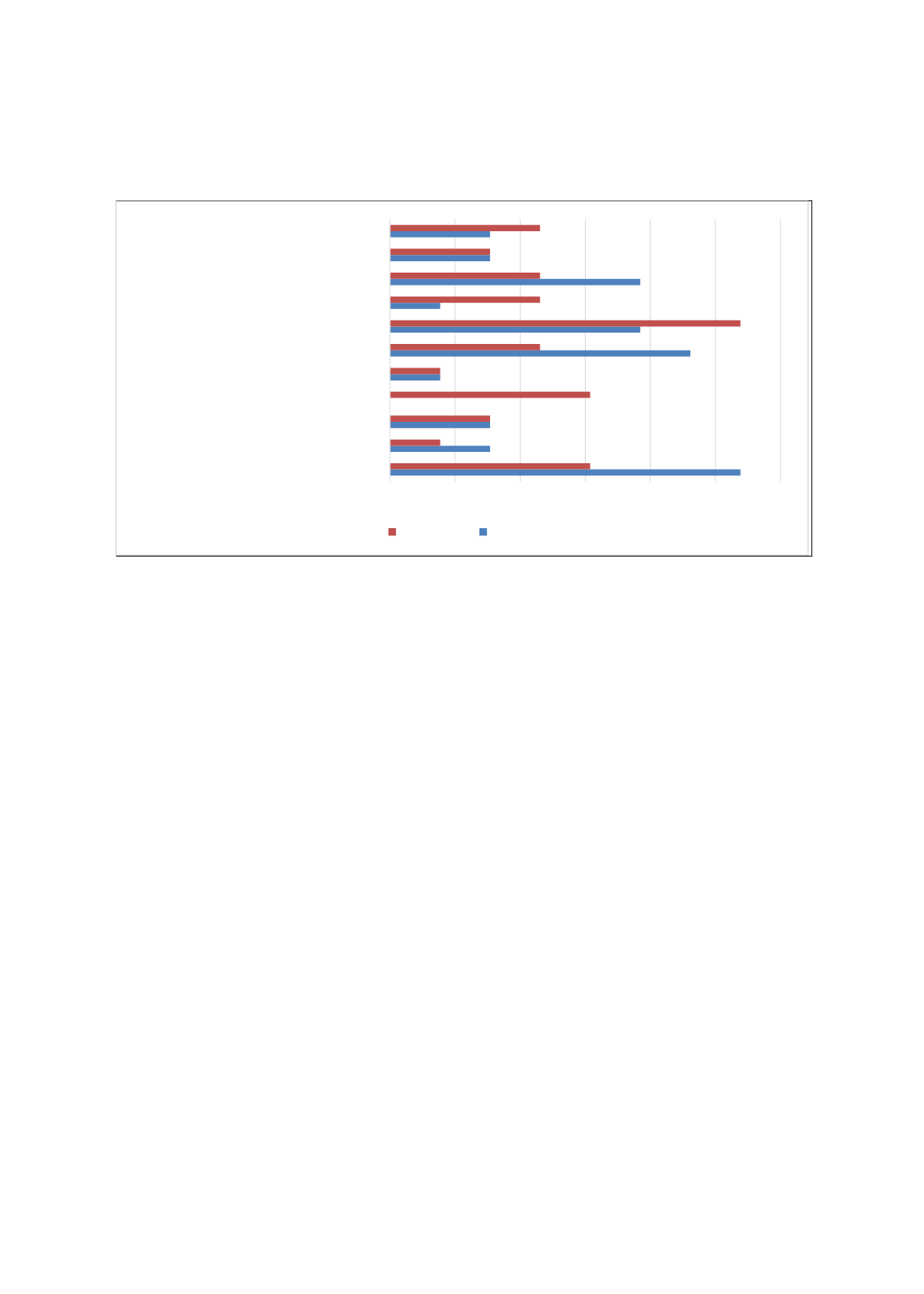

89
Figure 3.1.11: Main Barriers to Quality Education in Primary and Secondry Education in
Jordan
Source:
Author’s calculation based on stakeholders survey data.
Participating stakeholders were also asked about their views on the main barriers to quality
education at the primary and secodnary level in Jordan (
Figure 3.1.11
). Once again, the lack of
effective school leadership is identified by over half of the stakeholders interviewed as one of
the three most important barriers to quality education in primary school. This is followed by, in
terms of importance, lack of teacher motivation, lack of good/qualified teachers, imappropriate
curricula content, lack of school autonomy, lack of parental involvement and lack of funding,
language of instruction and lack of facilities. Turning to the three most important barriers to
education secondary education, half of the stakeholders interviewed identified the lack of good
teachers. This is followed by pressure of external evaluation, lack of effective leadership,
language of instruction, lack of teacher motivation, and inappropriate curricula content. Only
one out of five respondents identified lack of facilities and lack of funds as barriers to quality
secondary education in Jordan. The perceived lack of importance of facilities and funds is also
noted in case of primary schools.
The lack of qualified/good teachers appears to be a shared constraint for delivering quality
primary and secondary education in Jordan. A QRF sponsored nationwide survey of government
school teachers also identified the lack of formal training among teachers. 28% of the
interviewed teachers reported not having received pre-service training while less than half of
teachers reported receiving in-service training in the last two years (Qarout, Pylvainen, Dahdah,
and Palmer, 2015).
Given these responses, stakehodlers were asked to identify three factors that they considred as
most important for improving education quality in Jordan. The most popular response was
teacher development programs and improve school culture learning organization. The emphasis
on teacher development is consistent with the fact that most stakeholders were worried about
the lack of good/qualified teachers in Jordan. The other factors reported, in order of frequency,
are the development of communication skills among students, promoting student-centred
0
0,1
0,2
0,3
0,4
0,5
0,6
Lack of effective school leadership
Lack of school autonomy
Lack of funds
Pressure of external evaluation
Lack of facilities
Lack of teacher motivation
Lack of good teachers
Language of instruction
Inappropriate curriculum/book content
Lack of parental involvement
Other
Secondary Primary
















